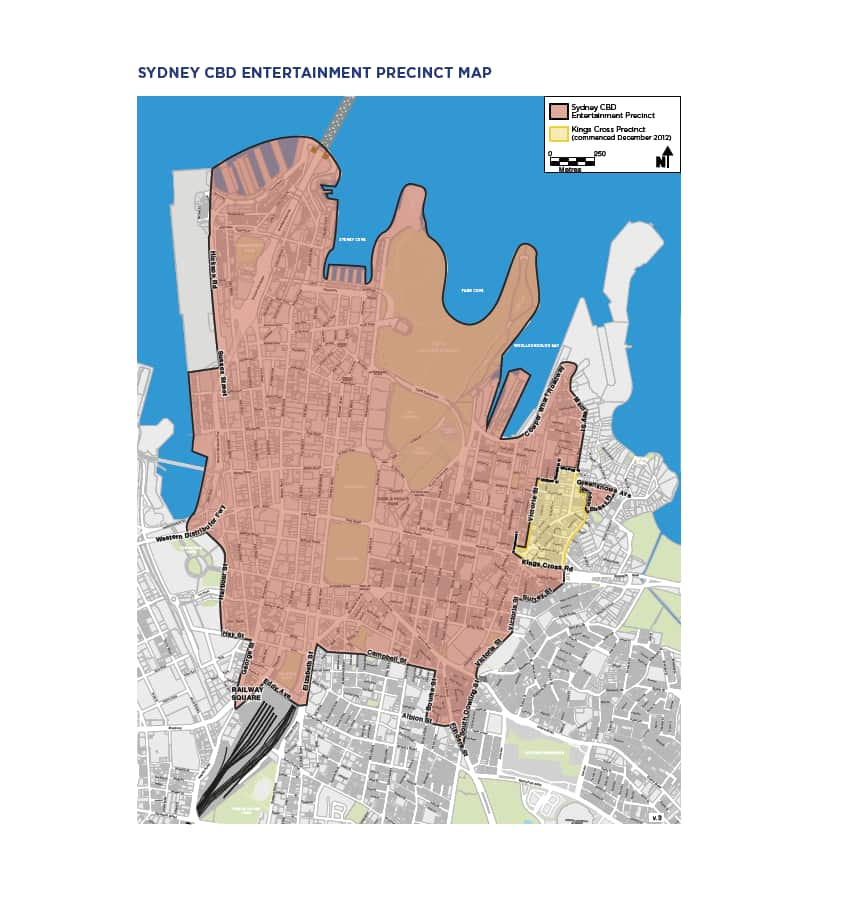Sydney's controversial lockout laws have been in place less than a year.
Police report safer streets, but businesses in the CBD's late night industry report worse conditions.
The deaths of two young men who were attacked in Kings Cross – Thomas Kelly in 2012 and Daniel Christie on News Year’s Eve last year – sparked national outrage.
The laws in Sydney CBD Entertainment Precinct, with no entry after 1.30am and last drinks at 3am, were introduced not long after a popular social media campaign rebranded so-called "king hits" as "coward punches".
After six months, what do the statistics say?
The latest data, for the quarter ending September, from the NSW Bureau of Crime Statistics and Research (BOCSAR) says non-domestic violent assaults (NDVAs) have decreased across Sydney for years.
Between 12am and 6am, NDVAs have decreased across the Sydney and Kings Cross Local Area Commands at a faster rate than the Greater Sydney area, the BOCSAR data says.
Crime researcher and BOCSAR director, Doctor Don Weatherburn, said the effects from Sydney’s lockout and last drinks laws were unknown, since the laws were so new.
“Too early to tell,” Dr Weatherburn said.
NSW Police were contacted for comment, but declined the chance for an interview.
In August, the Daily Telegraph reported Central Metropolitan Commander Assistant Commissioner Mick Fuller's positive comments about the lockout laws.

The Sydney CBD Entertainment Precinct. Pic: City of Sydney, NSW Government.
Less customers, lost business
Tim Petersen from the Potts Point Partnership said the lockout laws had a huge effect on Kings Cross’ late night industry.
A range of other red tape had added to the devastation, he said.
“The problem really is there’s been such an enormous amount of rules and regulations thrown at industry,” Mr Petersen said.
He owns a café, which the lockout laws had not directly affected.
However, the trickle-down effects had reverberated around the Kings Cross area, and businesses were losing money, Mr Petersen said.
The effects of new rules had not been considered before the laws were introduced, he said.
“I think the residents are happy the whole area is a lot quieter,” Mr Petersen said.
Douglas Grand, from the Kings Cross Licensing Liquor Association, said about 500 people in the late night industry at Kings Cross had lost their jobs.
That did not include DJ's, security guards, live musicians and others, Mr Grand said.
The Sex Workers Outreach Project said there had been no indication exotic dancers were turning to sex work, but said the industry as a whole was noticably affected.
This New Year’s Eve Sydney’s lockout laws will be eased to let people into pubs until 3am.
However, last drinks will still be called at 3am.
"What if it was your child?"
Thomas Kelly died after a "one hit punch" in 2012.
His life support was switched off in hospital days after the attack.
His father Ralph Kelly is the director for the Thomas Kelly Youth Foundation.
Mr Kelly said if the lockout laws proved to be effective, then they were necessary.
“If we can save one life, it has to be positive,” Mr Kelly said.
He understood the laws must have affected businesses in Kings Cross.
“If it was their children we were talking about I think they would agree.”
Violence, like the punch that ended Thomas’ life, was not the only issue, Mr Kelly said.
“It’s not just violence. It’s sexual assault, rape, people running in front of cars, people doing things they wouldn’t do if they were sober.”
Rebekah Stokes, who is involved with the push to rebrand "king hits" as "coward punches", was attacked in Brisbane in 2013. The man who hit her was no king, Ms Stokes said.
City government perspectives
The City of Sydney agrees with Dr Weatherburn; lockout and last drinks laws’ effectiveness could not be called since they were introduced so recently.
However, a City spokesperson said they supported measures to address alcohol-related crime.
The City would like to see the expansion of entertainment options that did not include consumption of alcohol, the spokesperson said.
Melbourne trialed lockout laws in 2008, but Lord Mayor Robert Doyle said the laws were not right for Melbourne.
“Melbourne is a complex, vibrant, 24-hour city,” Lord Mayor Doyle said.
“Lockout laws did not suit our city, our businesses or our people.”
Melbourne’s 2am lockout laws were not effective at curbing anti-social behavior, Lord Mayor Doyle said.
Article, charts edited.

